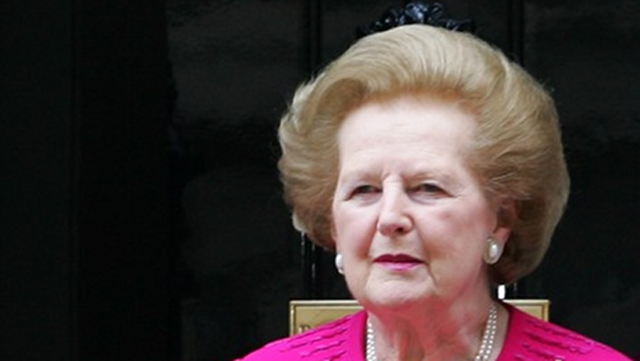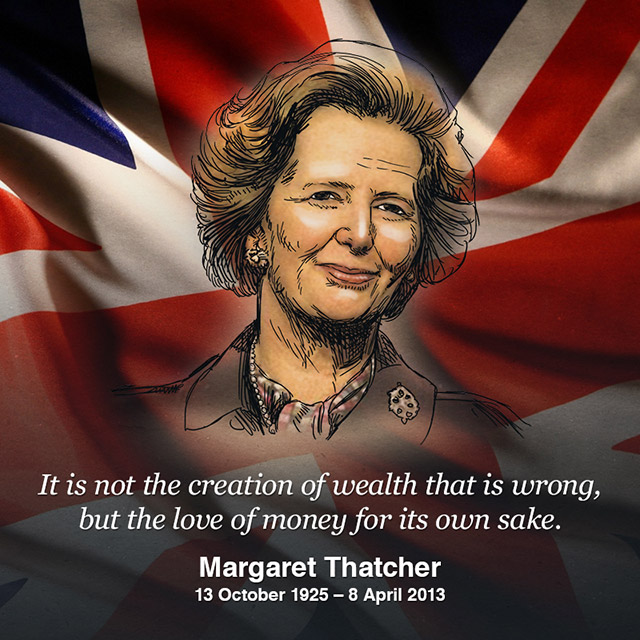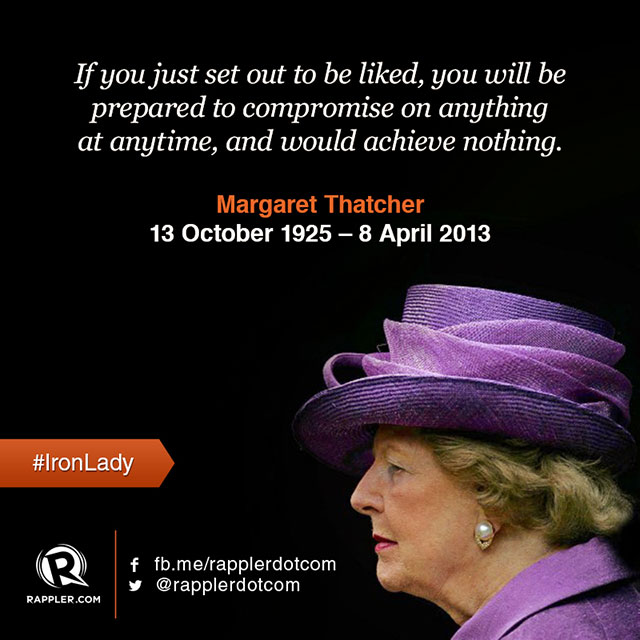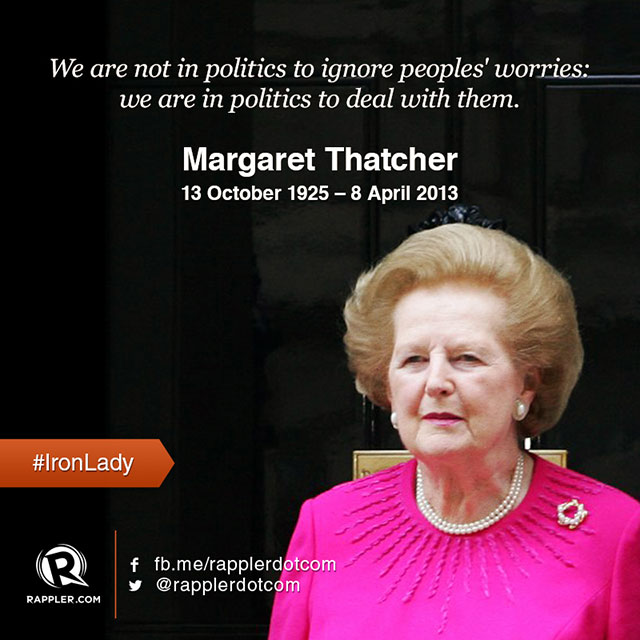SUMMARY
This is AI generated summarization, which may have errors. For context, always refer to the full article.

LONDON, United Kingdom – Margaret Thatcher, who died aged 87 following a stroke on Monday, was nothing if not quotable.
Here are some the former British prime minister’s most famous phrases:
— “I speak as a very young Tory, and we are entitled to speak, for it is the people of my generation who will bear the brunt of the change from the trials of the past into calmer channels.” (Thatcher, then Oxford University student Margaret Roberts, in her first recorded political speech, June 1945)
— “I don’t think there will be a woman prime minister in my lifetime.” (Thatcher on BBC television, March 1973)
— “If you want something said, ask a man. If you want something done, ask a woman.” (Attributed)
— “Where there is discord, may we bring harmony. Where there is error, may we bring truth. Where there is doubt, may we bring faith. And where there is despair, may we bring hope… There is now work to be done.” (Thatcher quotes Saint Francis of Assisi and recently murdered Conservative member of parliament Airey Neave on her first day in Downing Street, May 1979)
— “We are simply asking to have our own money back” although it is famously often misquoted as: “I want my money back.” (Thatcher demands a budget rebate for Britain at a 1984 European summit)
— “You turn if you want to. The lady’s not for turning.” (Thatcher holds her ground on her criticized economic policies at the Tories’ annual conference, October 1980)
— “Just rejoice at that news and congratulate our forces and the marines… Rejoice.” (Thatcher hails the April 1982 recapture of South Georgia in the Falkland Islands from Argentina. Often misquoted as: “Rejoice! Rejoice!” April 1982)
— “I came to office with one deliberate intent: to change Britain from a dependent to a self-reliant society — from a give-it-to-me, to a do-it-yourself nation. A get-up-and-go, instead of a sit-back-and-wait-for-it Britain.” (Thatcher outlines her political philosophy to business leaders. February 1984)
— “We have ceased to be a nation in retreat… We rejoice that Britain has re-kindled that spirit which has fired her for generations past and which today has begun to burn as brightly as before.” (Thatcher takes stock of the “Falklands factor”, July 1982)
— “And now it must be business as usual.” (Thatcher refuses to let the Irish Republican Army bombing of her seafront hotel in Brighton, southern England in October 1984 stop the Conservative conference)
— “I like Mr Gorbachev. We can do business together.” (Thatcher speaks to the BBC after meeting Soviet leader Mikhail Gorbachev in December 1984, five years before the end of the Cold War)
— “There is no such thing as society. There is living tapestry of men and women and people, and the beauty of that tapestry and the quality of our lives will depend upon how much each of us is prepared to take responsibility for ourselves and each of us prepared to turn round and help by our own efforts those who are unfortunate.” (Interview published in October 1987 in Women’s Own magazine)
— “We have not successfully rolled back the frontiers of the state in Britain, only to see them re-imposed at a European level with a European super-state exercising a new dominance from Brussels.” (Thatcher’s seminal Bruges address on Europe, in September 1988)
— “We have become a grandmother.” (Thatcher announces the birth of her first grandchild, March 1989)
— “I shall fight on, I shall fight to win.” (Thatcher vows to contest a second ballot of an internal Conservative Party leadership contest, November 21, 1990)
— “I confirm it is my intention to let my name go forward for the second ballot.” (Thatcher, in Paris for a conference, vows to fight on after winning a majority of the vote in a Conservative leadership contest. But the margin is insufficient and she later steps down. November 22, 1990.)
— “We’re leaving Downing Street for the last time after eleven-and-a-half wonderful years, and we’re very happy that we leave the United Kingdom in a very, very much better state than when we came.” (A tearful Thatcher as she left office on November 28, 1990 after being ousted as Conservative leader).
Check out these Rappler Instaquotes:



– Rappler.com
Add a comment
How does this make you feel?
There are no comments yet. Add your comment to start the conversation.